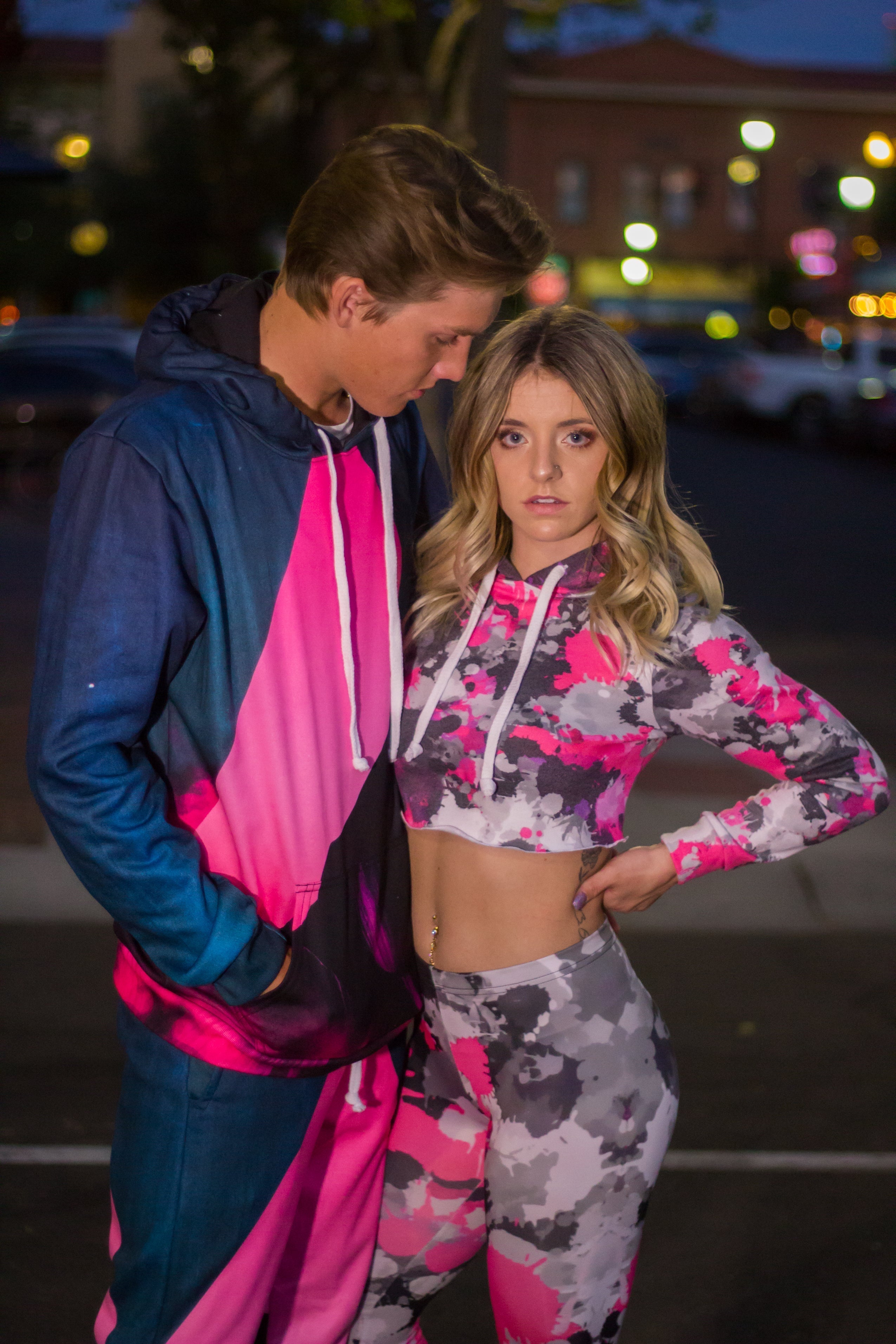NYC's TPA Studios Paves The Way For Upcoming DJs & Producers: Interview With Founder JP Solis
One thing that is essential for the future generation of DJs and producers to continue is to offer guidance and a welcoming environment for the upcoming generation of artists; a platform and environment in which they will be surrounded by like-minded individuals and can express their souls through music freely. That's the beauty of DJ & production schools- and that's the beauty of NYC's Tin Pan Alley Studios.
Based in the heart of New York City, TPA Studios is a community of DJs and producers that specializes in contributing to each individual artist's growth, development and their musical craft.

TPA pushes the boundaries for music education and offers an eclectic selection of DJ, music production, artist development classes and open houses (the next one taking place on December 7th) that can cater to everyone. Whether you're already a well-established artist, want to further perfect you craft, work on your overall brand as an artist or you're just starting out your career, there is room for you to thrive and grow at TPA. They even do weekly "student profiles," where they shine the light on their own students.

Quality is something that TPA cares about a lot- as their Production Studio is lined with only the finest technology and equipment so that their students can experience the best of the best and fully immerse themselves in creation without any limitations. The concept of "classrooms" and "school" don't particularly peak the interests of many, but TPA sets a classroom environment unlike any other. Welcome to The DJ Lab.
This is where class is in session, literally. I mean if this was my classroom, I'd actually be excited to go to school. The atmosphere was designed to emulate a club setting, even down to their color-shifting LED striped floors. This type of set-up takes the pressure off the student and gets them comfy in a club type of setting so that when their real deal club set rolls around, they'll be well-prepared.

Although the motto is "work hard, play harder", there are moments where every artist just needs to zen-out and take a breather- so take as many breathers as you need as you watch a movie, listen to some vinyls or even play some video games over at The Lounge. And as if the studio set-up wasn't enough, the minimalist aesthetic of the facility are simply on-point. All in all, TPA was created for you to create, it's as simple as that.

TPA's love and care for their students and for music in general is acknowledged by the masses, from LA's Space Yacht to Ghastly & Brillz to Callie Reiff, who have all made their way over to grace those TPA decks. There's a reason that it even caught the eye of magazine Harper's Bazaar- as they joined forces with the studio to preview a live DJ demo set on-site at TPA that attracted a reach of over 12,000 viewers.

Completely transfixed by this entire studio and it's successes, I wanted to know who was responsible for creating this beautiful musical haven of creation and for training the next generation of DJs and producers. That person responsible is a humble man by the name of JP Solis, and I got the opportunity to chat with him about TPA, its roots, advice for upcoming artists and all things music:
iEDM: Hey JP! Awesome to meet you. Love everything you've done with TPA. With that being said, tell me a little bit about what inspired you to start TPA Studios:
JP: I Co-Founded Dubspot in 2006, after one of my mentors encouraged me to start teaching others to do what I do: moving the crowd and party rocking. It’s not as simple as one might think. Walking into a packed nightclub and getting people to dance and have a good time. You have to know what to play, understand rhythm, and have a good ear for melody. Your music has to flow, your transitions need to be seamless, you have to be able to tell a good story, take people on a journey….all on the fly.
So yeah, I got into education - teaching DJing, some music production - and realized how great it felt to see others get good at something they are passionate about. And how I can actually help translate that passion into a valuable life skill, an inspiring hobby, or in some cases a fulfilling career. That’s our mission. I left Dubspot in 2012 to focus on building my live-streaming platform, Noise212. We were responsible for creating the Harlem Shake viral sensation. One of our interns created the first video that sparked the trend, after we featured Baauer as a guest DJ on our livestream show.

Around the same time, I was approached with the idea for building a new training facility for DJs and Producers. I accepted the offer and began working on a design that would take the nightclub experience into the classroom. Building and owning a nightclub was always part of the long term plan, so this was a great opportunity for me to incorporate some ideas I had for the ultimate dance floor. I worked on the design with help from one of my former DJ students turned business partner, Adrian “Roark” Letechipia. He came to me with a full rendering and layout of what the room would look like and I was totally blown away.
That’s how TPA got started.
iEDM: TPA has quite the history, and has been a staple and influential landmark in the music industry- what does TPA's history mean to you?
JP: I had no idea we were sitting on a huge piece of music history until we finished building the studio. I took a break and went to Disneyland to re-calibrate and refresh my senses and get some new inspiration. Sure enough, inspiration hit and it said “grammy museum.”

I pulled out my phone, ran a google search for the Grammy Museum and immediately drove there. I had no idea why I was doing it... I tend to follow my intuition... it’s the same feeling I often get when I’m in front of a dance floor and my inner voice tells me what song to play next. Sometimes it doesn’t make sense, but it always works out. In the Grammy Museum, I saw a huge poster that said “Tin Pan Alley: Birthplace of The Music Industry...located on 28th Street between 5th and 6th Avenue” Our studio is located on 28th Street, right on Tin Pan Alley. Coincidence?
iEDM: Quite the coincidence! Moving forward, what goals do you have for TPA in the future?
JP: I’d like to see our students fulfill their creative and artistic aspirations. Pursuing a passion in the arts often comes with a high degree of uncertainty and..let’s just say this...it’s not investment banking where I work 80 hours a week, and I get paid x amount. And at the end of the year I get a bonus for working hard. It doesn’t work that way in our industry.

A career in the arts is very different. It’s not a straight line. And there’s no user manual for this stuff. This is what I hope to address here at TPA. We may not have all the answers, but we’re surrounding ourselves with the best thinking available right now when it comes to DJing, producing, creativity, inspiration, innovation, artistry, and...a little bit of entrepreneurship. After all, to become successful in the arts, you sometimes have to think like an Entrepreneur. The ability to make people feel is your product.
iEDM: Give me a little run down of the classes and programs TPA offers.
JP: DJing, Music Production, Artist Development and Artist Mentorship, and Corporate Team Building.
iEDM: What advice would you give to aspiring DJs and producers that are just getting started and feel like their dreams are so far ahead of them?
JP: Know where you’re going. Have a clear picture in your mind of how you want things to be when you get there, but take it one day at a time. Between Point A and Point B is unlimited possibility.

Do the best that you can with what you have today, and be open to the unknown. Surround yourself with things, people, and ideas that inspire you. Nothing can change the tone of your day faster than a great piece of music can.
iEDM: You implement state of the art equipment and brought in the best speakers on the market. How important do you think the quality of equipment is to an artist's development and growth?
JP: The closer you can get to the reality of what it’s like to play mainstage Ultra or primetime at Output or Marquee, the more effective your training.
iEDM: Personal favorite genre? What are your own musical roots?
JP: Everything. I started DJing Deep House and Tech House after high school, and slowly began to realize that if I wanted to make people dance in New York City, you have to play EVERYTHING. So I found a way to make “EVERYTHING” fit together and stitch them the same way I would if I were playing Tech House.

So now I can go from a Miles Davis record into a bangin' techno record without missing a beat. Or go from Travis Scott and Lil Yachty into festival trap and make it sound good.
iEDM: Which artists or tracks do you currently have on replay right now?
JP: I’ve been doing a lot of vinyl record digging lately, so a lot of old jazz records. Coltrane, Getz/Gilberto/Jobim, Count Basie/Sinatra...
iEDM: If you could pick 5 artists of any genre and curate your very own festival with those 5 artists as your headliners, who would you choose and why?
JP: All my students.

The next TPA open house is December 7th from 7PM to 10PM- so you can see what it's all about for yourself!

















